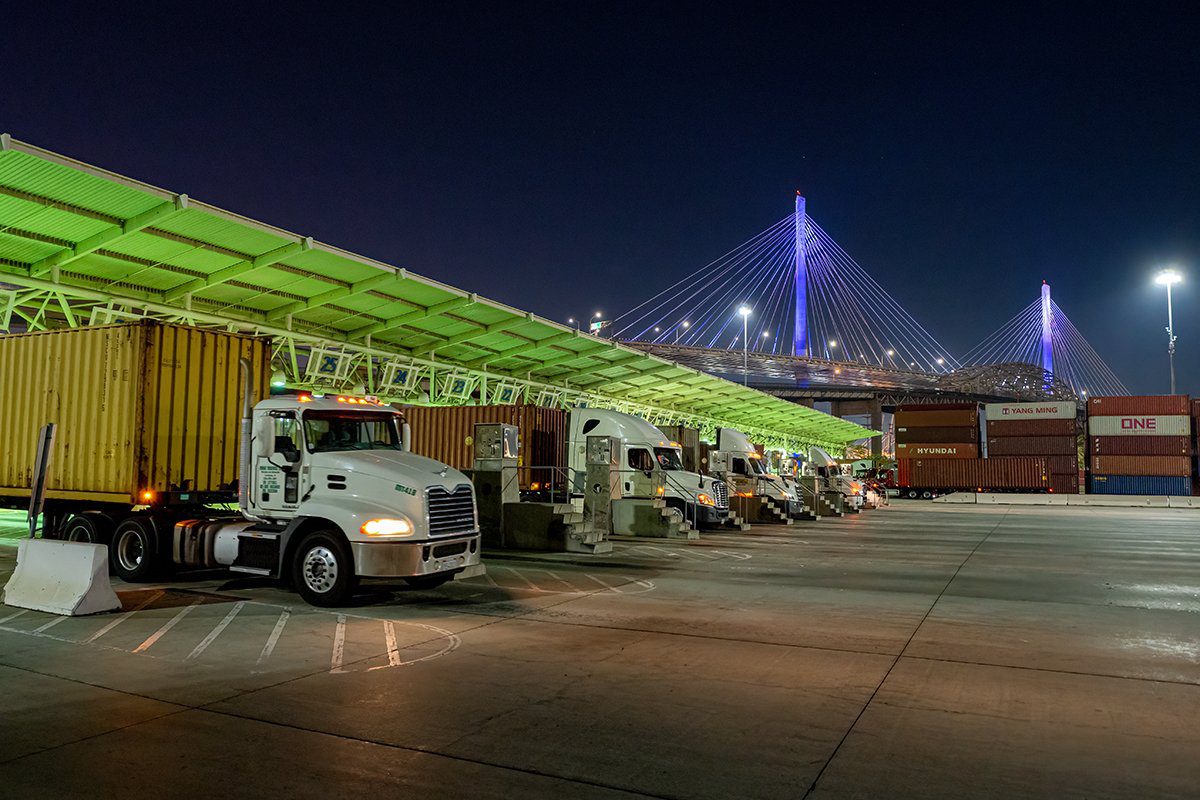Port of Los Angeles Sets June Cargo Record Amid Tariff Concerns
The Port of Los Angeles handled 892,340 Twenty-Foot Equivalent Units (TEUs) in June, marking an 8% increase compared to the same period last year and setting a new record for...

As the Holiday season moves towards crunch time, the “supply chain”, with its empty shelves and delayed delivery times, is rivalling the Omicron variant when it comes to attention from newscasters and media outlets. The Federal Maritime Commission (FMC), which ostensibly “regulates” liner shipping, has launched a Maritime Data Initiative, under the direction of Commissioner Carl Bentzel.
With cargo flows drastically slowed down even before December’s surges in demand, the FMC has been seeking to get the views of participants at various points in the chain on what the role of data might be in speeding up containerized cargo movements. The information and findings will be synthesized, hopefully with recommendations for what a common standard for automated data sharing might look like, at a meeting to be held in Spring 2022, if all goes according to plan.
The Chairman of the FMC, Daniel Maffei, set the stage for the Data Initiative at the beginning of the first meeting (in early December), by noting that: “One of the few ways we can truly increase the capacity of the supply chain in this country to handle more ocean cargo is through better information flow, enhanced data management, and increased transparency. Figuring out how to do this while maximizing benefits and minimizing costs is a rather Herculean task.”
At that same meeting, the FMC’s Chief Economist, Dr. Kristen Monaco “…underscored the benefits of creating a foundation of common lexicon and taxonomy throughout the trade community and noted these are largely missing in the maritime data environment. She pointed to inconsistencies in how common data elements such as ports, vessels, and even countries are reported from system to system,” according to the FMC.
The FMC is going to be making an effort to listen to real participants, at various links in cargo supply chains- not just economists and the usual widely-quoted industry influencers (who may, in fact, be furthering specific agendas). The mid-December meeting of the Data Initiative, held virtually, brought together a group of trucking executives with observations literally “from the loading docks” (ordinarily, we’d talk about “trenches” but these participants are involved in “drayage”- which means moving containers, mounted on chassis, in and out of terminals).
Mr. Bentzel, a maritime lawyer with a lengthy resume of Washington, D.C. experience, explained at the beginning of the session, “We can pretty effectively get cargo across the oceans into the terminals…but our real challenge has been finding a way to move it from the terminal out to its ultimate destination.”
The drayage executives participating in the session lamented the excessive reliance on email messaging, in contrast to a more desirable architecture of Application Programming Interfaces (APIs), where data is fed from one program into another. One participant on the call, Mr. Will Connell, President of Gulf Intermodal Services, LLC, which serves ports around the country, suggested that the FMC take a close look at Houston, Texas. In discussing the problem of chassis availability (or lack thereof), a recurring theme in the session, he sang the praises of a Navis system in the port replete with API’s, saying: “We can pull every piece of data that we need electronically….every time that there is an update, we can pull it into our system”.
The efforts of the independent FMC are in stark contrast to moves on Capitol Hill seeking to regulate the behavior of the large carriers; the Ocean Shipping Reform Act of 2021 has moved through the House of Representatives with broad bi-partisan support. The bill, which would essentially put the FMC into the business of promoting U.S. exports (it’s complicated- just think about all those empty containers all being filled up with agricultural and other cargo), will likely gain a “thumbs up” in the Senate, and could be quickly signed into law.

Sign up for gCaptain’s newsletter and never miss an update

Subscribe to gCaptain Daily and stay informed with the latest global maritime and offshore news


Stay informed with the latest maritime and offshore news, delivered daily straight to your inbox
Essential news coupled with the finest maritime content sourced from across the globe.
Sign Up